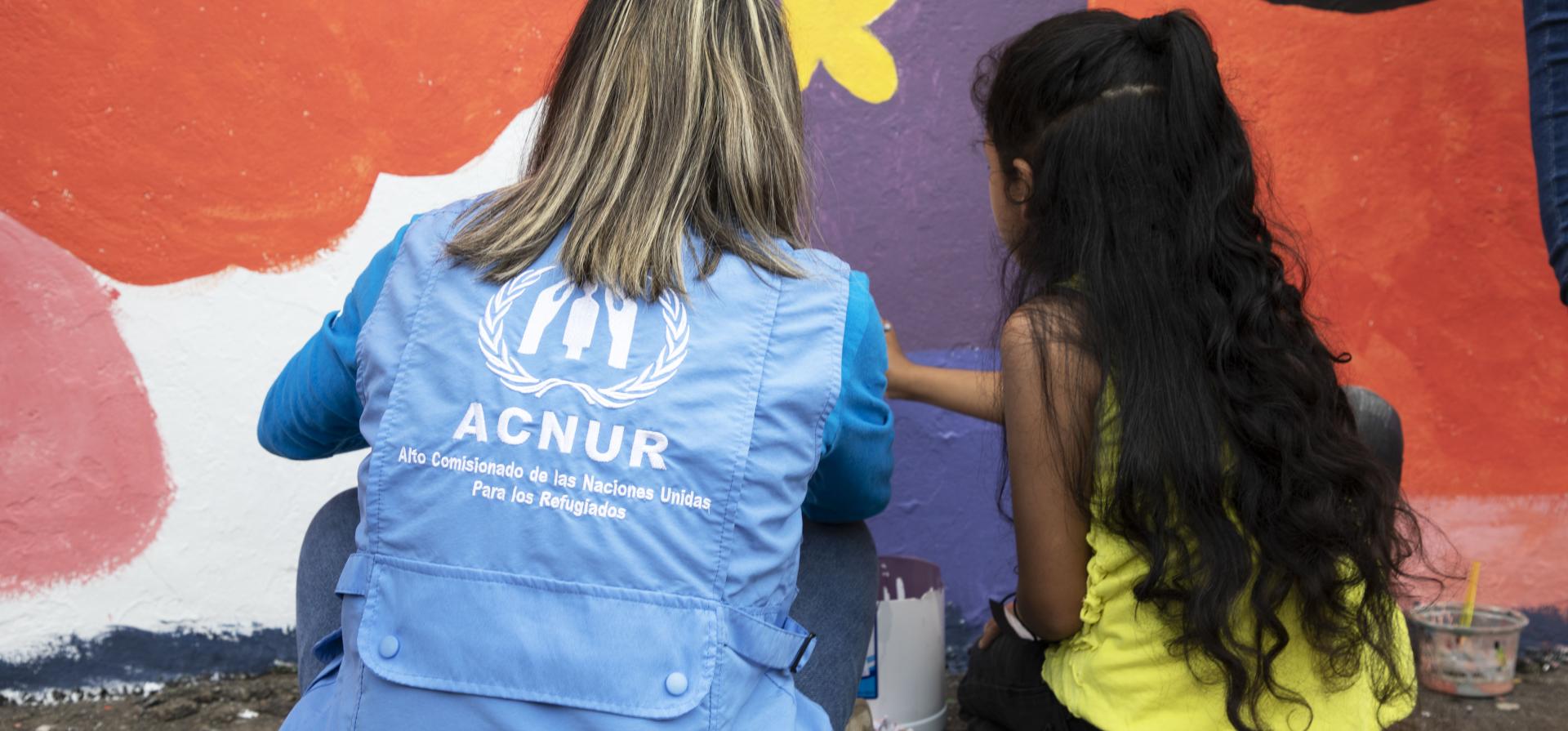Executive summary
The Americas region hosted about 21.5 million forcibly displaced and stateless people in 2022. Forced displacement was driven by human rights violations, persecution, violence, insecurity and inequality, coupled with the economic consequences of COVID-19, the global economic impact of the Ukraine situation, and severe climate-related disasters.
UNHCR supported countries in the Americas to enhance protection-sensitive entry systems, ensure access to asylum and other protection-oriented arrangements, stabilize populations in communities of destination, origin and return, and expand solutions via complementary pathways. During the year, nearly 25,000 people were supported with processes to access to documentation, 177,000 received legal assistance, and over 193,600 people received cash assistance in 23 countries. With UNHCR’s support, 9,378 individuals were submitted for resettlement – the highest number of cases ever submitted in the region.
A record number of people made their way to the United States of America in mixed movements, enduring extremely hazardous conditions. According to the National Migration Service of Panama, 248,000 people crossed irregularly through the Darién, almost double the number in 2021, while almost 2 million individuals reportedly crossed the southwestern US border. UNHCR stepped up its presence in border areas, monitored mixed movements across the region, and advocated with Governments to offer protection-sensitive legal stay and access to asylum.
By the end of 2022, more than 1 million people had been uprooted by violence in El Salvador, Guatemala and Honduras and the deteriorating human rights situation in Nicaragua. Mexico and Costa Rica ranked among the countries receiving most asylum applications in the world, with around 118,800 and 129,500 new asylum claims respectively. UNHCR supported the Comprehensive Regional Protection and Solutions Framework (MIRPS) which facilitated cooperation on protection and solutions in the sub-region, including by digitizing and strengthening asylum systems. Honduras passed a landmark law on assisting and protecting IDPs and preventing internal displacement, supported by UNHCR’s technical advice. In response to the dire humanitarian situation in Haiti, UNHCR supported inter-agency response efforts, particularly in Central America and Mexico, where many Haitians arrived after initially seeking safety elsewhere.
There was a steady outflow of refugees and migrants from the Bolivarian Republic of Venezuela, combined with increasing onward movements and returns. With UNHCR’s support and guidance, host countries granted asylum and implemented protection-oriented legal stay arrangements, facilitating access to a legal stay, documentation, and socioeconomic inclusion to 4.2 million Venezuelans. UNHCR and other partners in the R4V inter-agency support platform stepped up efforts to support these initiatives through the provision of humanitarian and technical assistance, strengthening of asylum systems, support to regularization programmes, collaboration with local and regional governments via the Cities of Solidarity initiative, and the prioritization of social inclusion. Through the Refugee and Migrant Response Plan, host governments were assisted in addressing the existing and persistent needs of Venezuelan refugees and migrants and harmonized responses were promoted through the Quito Process.
In response to urgent protection needs, UNHCR assisted 865,000 individuals in 15 countries with protection and specialized services such as legal assistance and counselling. In Brazil, a Government programme voluntarily relocated more than 25,000 refugees, helping them to integrate and find jobs, while UNHCR supported 12,000 to make a similar move in Mexico.
In Colombia, UNHCR supported the roll-out of Temporary Protection Status, with 1.6 million Venezuelans holding temporary protection permits by the end of 2022.
Increasing internal displacement and confinement represented a major challenge: Colombia’s Victims’ Unit registered a total of more than 215,000 victims of forced displacement, the highest number since the 2016 Peace Agreement. UNHCR directly assisted 134,600 and provided protection services to over 26,000.
UNHCR strongly welcomed the adoption by 21 countries of the Los Angeles Declaration on Migration and Protection – promoting a collaborative response to the increasingly complex movements in the region – as well as the increasing dedicated support for refugee-hosting countries from financial institutions like the World Bank, Inter-American Development Bank and International Monetary Fund.
